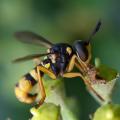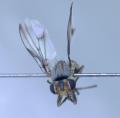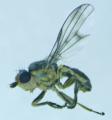Diptera.info :: Identification queries :: Diptera (adults)
Who is here? 1 guest(s)
|
[Pales pavida or processioneae]-Tachinidae
|
|
| Christine Devillers |
Posted on 28-09-2009 22:52
|
|
Member Location: Spa, Belgium Posts: 1215 Joined: 11.11.07 |
This Tachinidae was searching in herbage. Is it Pales pavida ? (Bluish body, red-tipped scutellum, facial bristles pointing down, tibia brown) About 10 mm, Belgium, 26-09-2009 Christine Devillers attached the following image:  [175.77Kb] Edited by Christine Devillers on 29-09-2009 23:26 |
|
|
|
| Christine Devillers |
Posted on 28-09-2009 22:53
|
|
Member Location: Spa, Belgium Posts: 1215 Joined: 11.11.07 |
pic 2
Christine Devillers attached the following image: 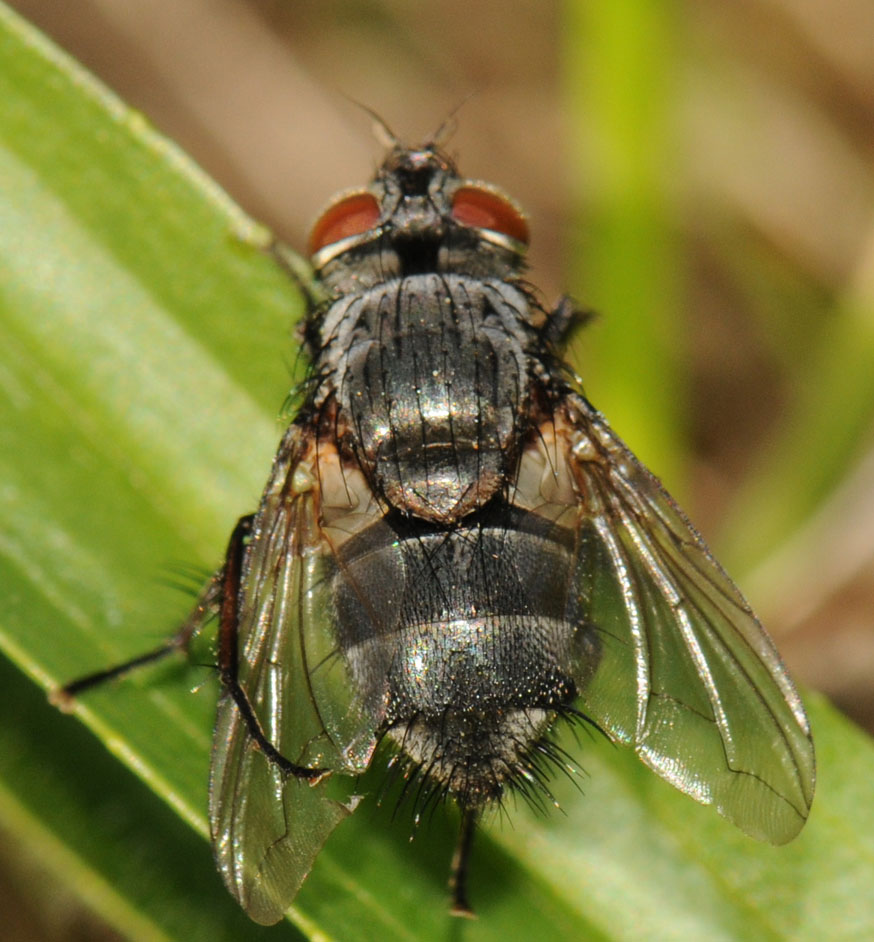 [158.86Kb] |
|
|
|
| Christine Devillers |
Posted on 28-09-2009 22:54
|
|
Member Location: Spa, Belgium Posts: 1215 Joined: 11.11.07 |
pic 3
Christine Devillers attached the following image: 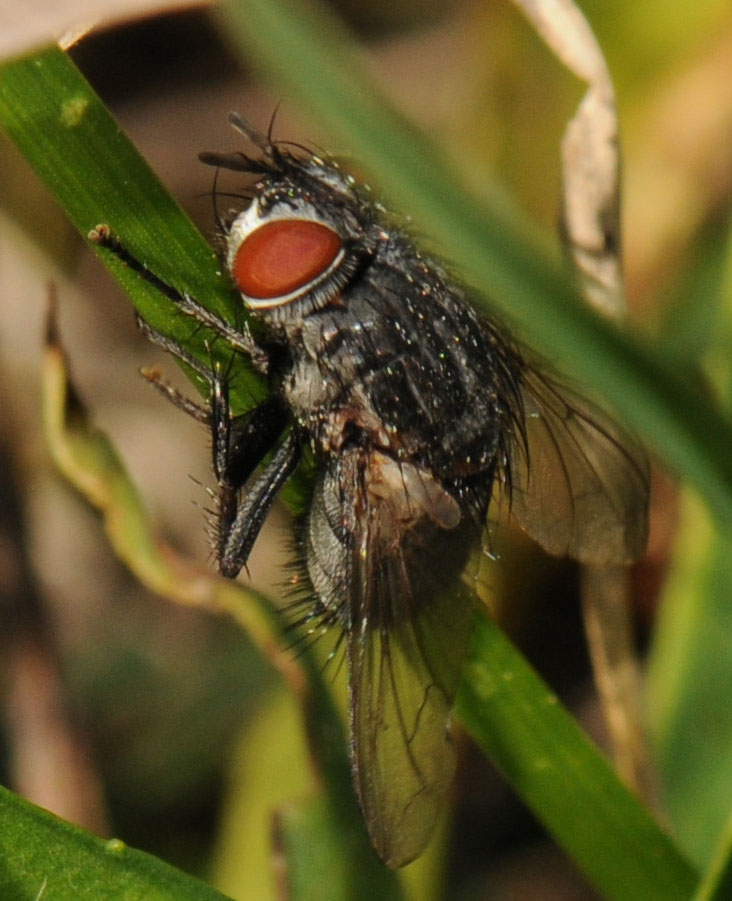 [122.62Kb] |
|
|
|
| Christine Devillers |
Posted on 28-09-2009 22:55
|
|
Member Location: Spa, Belgium Posts: 1215 Joined: 11.11.07 |
pic 4
Christine Devillers attached the following image:  [129.99Kb] |
|
|
|
| ChrisR |
Posted on 28-09-2009 23:36
|
|
Administrator Location: Reading, England Posts: 7699 Joined: 12.07.04 |
I don't think so ... I can see some proclinate oe but no evidence of long down-pointing facial-ridge bristles and the hind tibia should be orange/brown in Pales pavida  Saying that, I can't see what it is ... it isn't Phryxe (they have median discals) ... so I am confused 
Manager of the UK Species Inventory in the Angela Marmont Centre for UK Biodiversity at the Natural History Museum, London. |
| Zeegers |
Posted on 29-09-2009 20:39
|
|
Member Location: Soest, NL Posts: 18769 Joined: 21.07.04 |
Yes, it is Pales, despite the fact that the facial bristles asre difficult to see (you can see one, actually). Whether it is P. pavida or processioneae ... Theo |
|
|
|
| ChrisR |
Posted on 29-09-2009 20:55
|
|
Administrator Location: Reading, England Posts: 7699 Joined: 12.07.04 |
I see the brownish hind-tibia now ... not sure how I missed that last time! Here the Pales pavida I see have much stronger facial bristles though ... maybe I need to see a P. processioneae to check that out ... we don't get them here 
Manager of the UK Species Inventory in the Angela Marmont Centre for UK Biodiversity at the Natural History Museum, London. |
| Christine Devillers |
Posted on 29-09-2009 23:29
|
|
Member Location: Spa, Belgium Posts: 1215 Joined: 11.11.07 |
Thanks  again a new one for me. again a new one for me.Is it a female ? |
|
|
|
| ChrisR |
Posted on 30-09-2009 00:04
|
|
Administrator Location: Reading, England Posts: 7699 Joined: 12.07.04 |
Looks female to me (small pulvilli & fat, pointy abdomen) but I'm not having much luck with Pales today 
Manager of the UK Species Inventory in the Angela Marmont Centre for UK Biodiversity at the Natural History Museum, London. |
| Jaakko |
Posted on 30-09-2009 08:48
|
|
Member Location: Joensuu, Finland Posts: 479 Joined: 04.08.08 |
This specimen is too dusted to be Pales for me. I would go for Nilea rufiscutellaris, but don't think that I can see enough details to be sure. |
|
|
|
| Zeegers |
Posted on 30-09-2009 20:48
|
|
Member Location: Soest, NL Posts: 18769 Joined: 21.07.04 |
Female Pales can be this dusted. Nevertheless, since we are not sure about the facial bristles, we must consider Nilea as an option. To me, the habitus is Pales, but that can hardly be considered an objective argument. So... how to distinguish betwee Pales and Nilea based on the information in these pictures ? The tibiae are reddish in the middle (first pic). Is that so in Nilea ? Theo |
|
|
|
| Christine Devillers |
Posted on 30-09-2009 23:44
|
|
Member Location: Spa, Belgium Posts: 1215 Joined: 11.11.07 |
Perhaps those pictures could help (T3 seems to have discal bristles like in Pales)
Christine Devillers attached the following image: 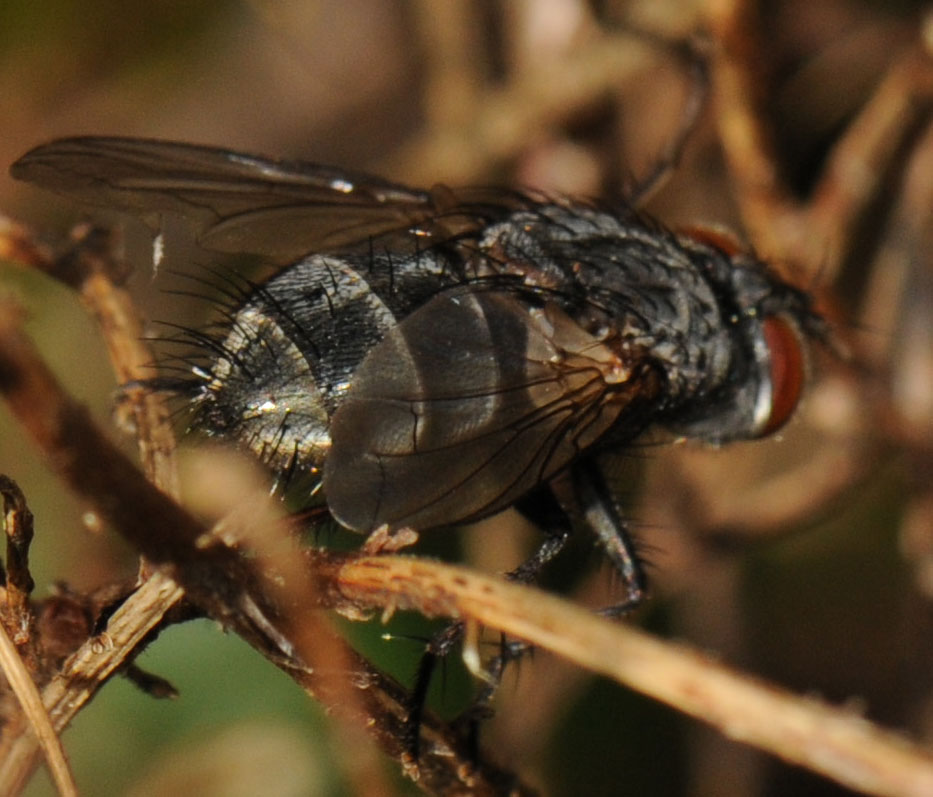 [129.16Kb] |
|
|
|
| Christine Devillers |
Posted on 01-10-2009 00:00
|
|
Member Location: Spa, Belgium Posts: 1215 Joined: 11.11.07 |
pic 2
Christine Devillers attached the following image:  [95.73Kb] |
|
|
|
| Christine Devillers |
Posted on 01-10-2009 00:01
|
|
Member Location: Spa, Belgium Posts: 1215 Joined: 11.11.07 |
Another view of the head
Christine Devillers attached the following image: 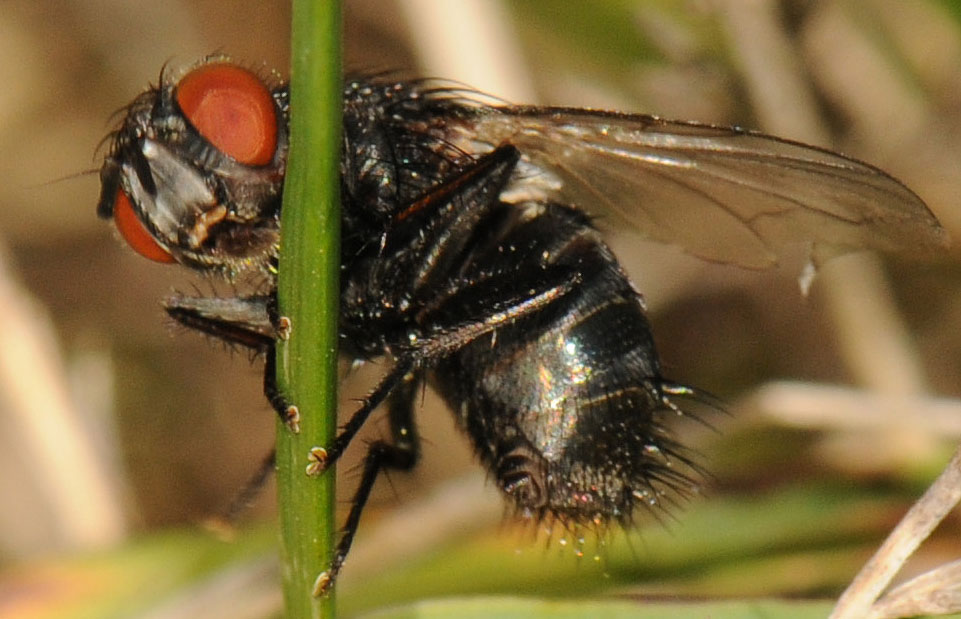 [121.67Kb] |
|
|
|
| Christine Devillers |
Posted on 01-10-2009 00:03
|
|
Member Location: Spa, Belgium Posts: 1215 Joined: 11.11.07 |
Earlier, at the same place, I've seen this one (I think it is the same species)
Christine Devillers attached the following image: 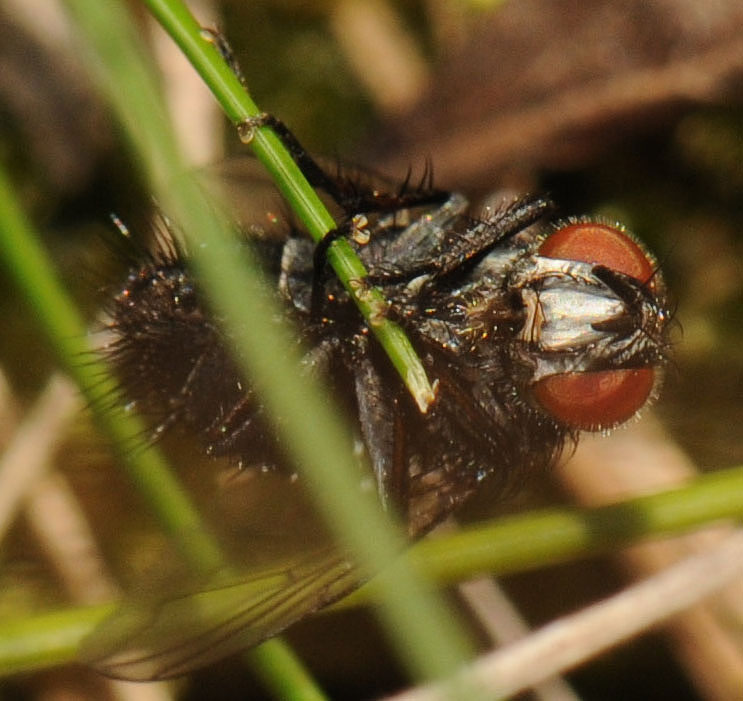 [102.92Kb] |
|
|
|
| ChrisR |
Posted on 01-10-2009 00:21
|
|
Administrator Location: Reading, England Posts: 7699 Joined: 12.07.04 |
Ahh, now *those* facial-ridge bristles are big enough to be Pales 
Manager of the UK Species Inventory in the Angela Marmont Centre for UK Biodiversity at the Natural History Museum, London. |
| Christine Devillers |
Posted on 01-10-2009 17:21
|
|
Member Location: Spa, Belgium Posts: 1215 Joined: 11.11.07 |
Thanks Chris, and you don't think that the presence of discal bristles on T3 also help to go to Pales ? (N° 209 in the key of Tschorsnig,Nilea has no discal bristles on T3). |
|
|
|
| Jaakko |
Posted on 04-10-2009 19:15
|
|
Member Location: Joensuu, Finland Posts: 479 Joined: 04.08.08 |
Ok, clear Pales.  |
|
|
|
| ChrisR |
Posted on 04-10-2009 19:29
|
|
Administrator Location: Reading, England Posts: 7699 Joined: 12.07.04 |
Christine Devillers wrote: Thanks Chris, and you don't think that the presence of discal bristles on T3 also help to go to Pales ? (N° 209 in the key of Tschorsnig,Nilea has no discal bristles on T3). I'm not sure - I don't get many Nilea here in the UK and Pales is pretty easy to identify when you see the facial ridge bristles 
Manager of the UK Species Inventory in the Angela Marmont Centre for UK Biodiversity at the Natural History Museum, London. |
| Jump to Forum: |



